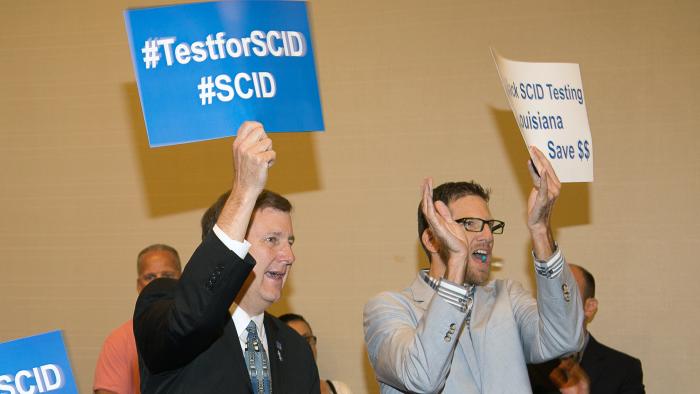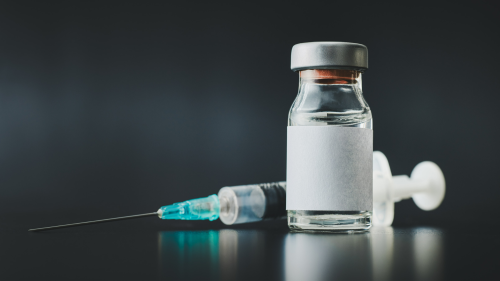
Advocate
IDF maintains a robust advocacy program focused on national, state, and local healthcare and public health policy issues relevant to the primary immunodeficiency (PI) community.

IDF maintains a robust advocacy program focused on national, state, and local healthcare and public health policy issues relevant to the primary immunodeficiency (PI) community.
Join the Immune Deficiency Foundation on February 26 at the South Carolina State Capitol for our State Advocacy Workshop—get trained, get connected, and take action to protect vaccines for the PI community at no cost to you.
IDF advocates for policies that allow patients ready access to safe and quality care, in the site of care that is most appropriate, with the treatment recommended by their healthcare providers, and with minimization of cost to the patient.
IDF advocates with policymakers and payers for insurance coverage of immunoglobulin (Ig) replacement therapy for those with PI, including access to specific Ig products, modes of administration, and sites of care.
Many with primary immunodeficiency rely on immunoglobulin replacement therapy (IVIG and SCIG), which is made from blood plasma. IDF advocates for plasma donation access and awareness to ensure adequate plasma supply.
People with primary immunodeficiency are immunocompromised and being able to receive and have insurance coverage for telehealth services helps them to avoid being exposed to infections in healthcare settings.
Insurance copay accumulators and maximizers punish those using copay assistance by not counting it toward deductibles and out-of-pocket maximums. Help IDF fight this unfair practice at the state and federal levels!
To protect Medicare beneficiaries from high out-of-pocket costs, it is essential to expand access to Medicare supplemental insurance plans, also known as Medigap plans.
IDF advocates to ensure the voices of individuals living with PI, who are immunocompromised, are represented in public health policy debates.
The Immunocompromised Collaborative is the united voice of communities whose health status makes them most vulnerable to threats from infectious disease.
People with PI rely on widespread immunization in their communities to avoid exposure to dangerous diseases. The foundation supports evidence-based public health policies that encourage vaccine uptake.
Rare Disease Advisory Councils (RDACs) serve as liaisons between state governments and their constituents with rare diseases. IDF supports the creation of RDACs in all 50 states.
Antimicrobial resistance (AMR) describes the failure of a particular drug to treat an infection that the drug was previously effective against. For those with PI, who rely heavily on antimicrobials, a lack of effective infection-fighting drugs could be devastating.
IDF advocates for policies that ensure universal newborn screening for SCID is maintained nationwide and support emerging opportunities to screen for other types of PI.

IDF advocates for increased research funding and the removal of barriers to the development and availability of new and emerging therapies to treat PI.




Receive news and helpful resources to your cell phone or inbox. You can change or cancel your subscription at any time.